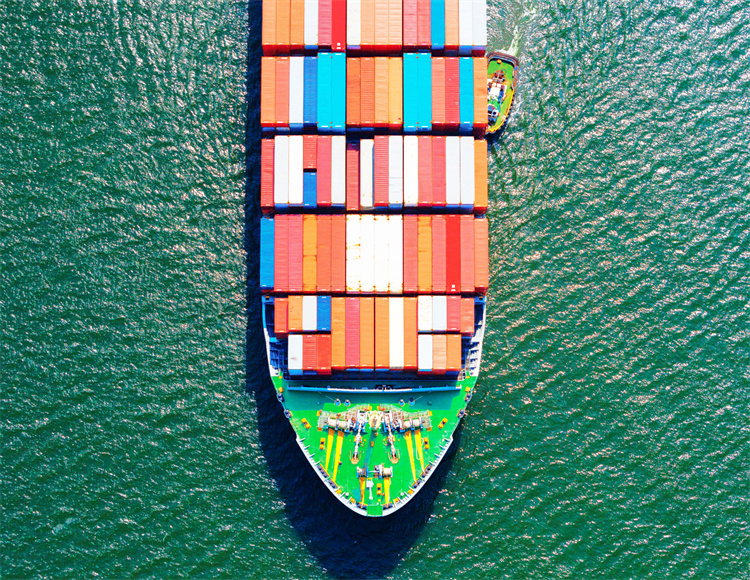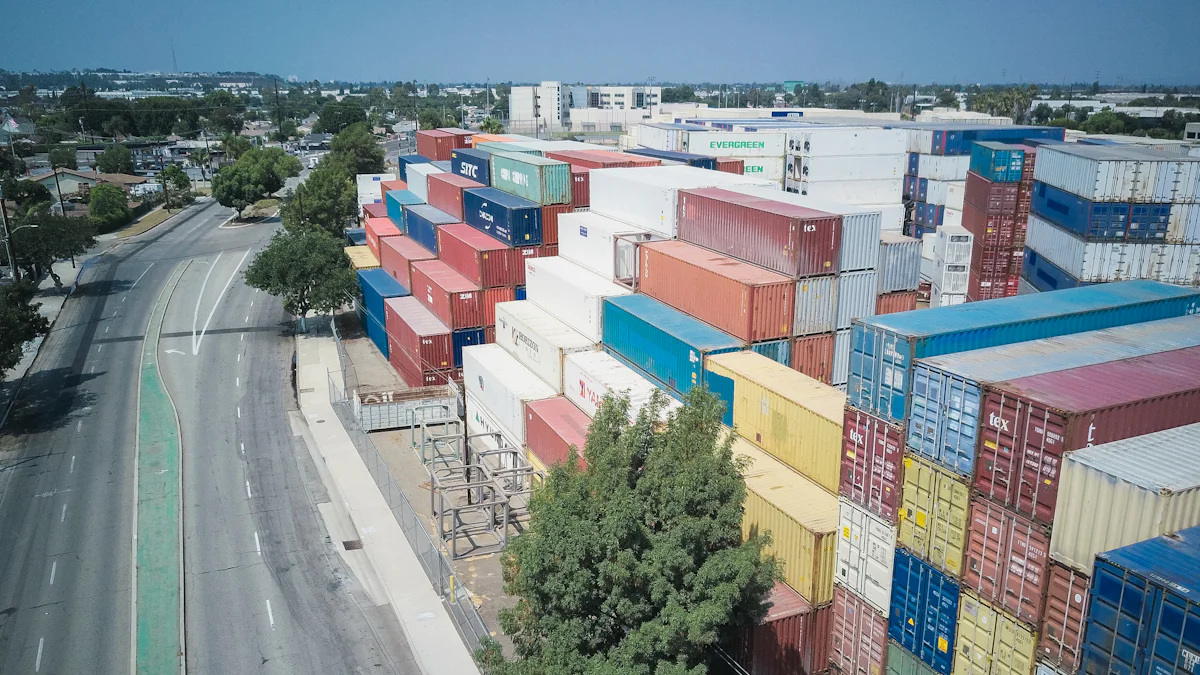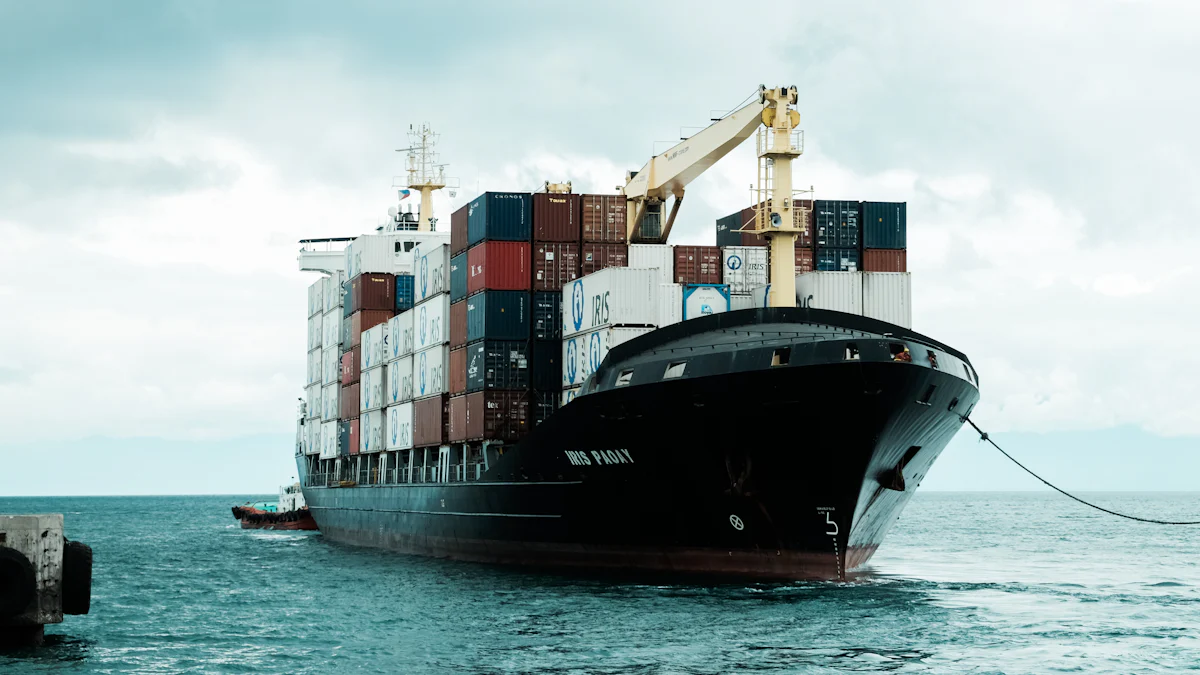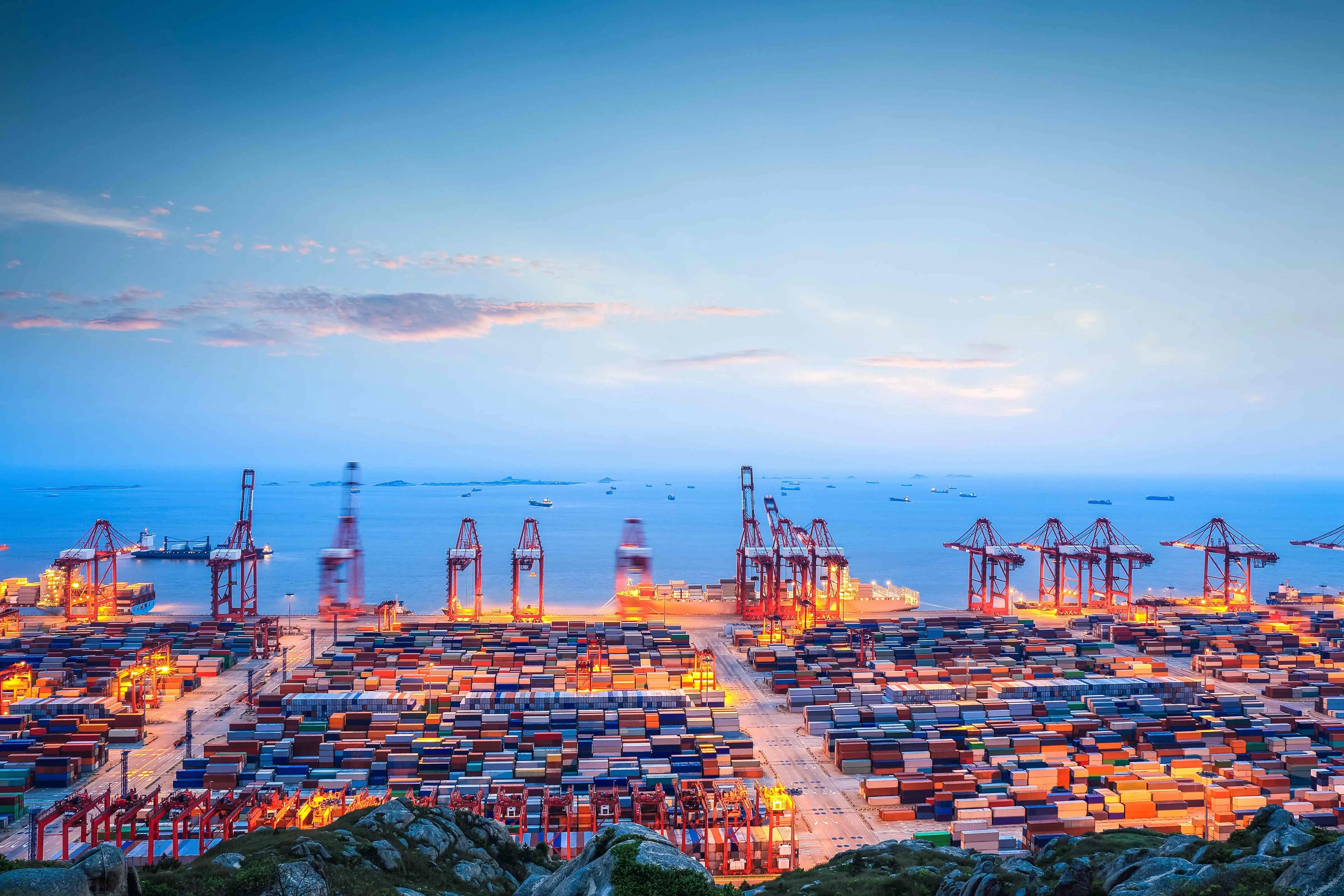Key Trends in Air and Ocean Freight for 2025

In 2025, you will witness significant shifts in the dynamics of air freight vs ocean freight. These trends will redefine logistics and supply chain operations. Understanding how these changes will affect your business is essential. Adapting to these developments will be crucial for success. Consider strategies that enhance efficiency and sustainability. Embrace innovation to stay ahead in the competitive market. By doing so, you will not only meet challenges but also seize opportunities for growth.
Key Takeaways
Stay informed about geopolitical influences, as they will significantly impact trade routes and shipping costs in 2025.
Adopt sustainable practices, such as eco-friendly fuels and energy-efficient technologies, to reduce your carbon footprint and enhance operational efficiency.
Embrace automation and AI to streamline cargo management, reduce errors, and improve overall freight efficiency.
Utilize digital tools like blockchain and IoT for enhanced transparency and real-time tracking of cargo, ensuring timely deliveries.
Monitor global economic trends to anticipate shifts in freight demand and adjust your logistics strategies accordingly.
Implement effective cost management strategies to navigate fuel price volatility and optimize freight operations for better profitability.
View the evolving trends in air and ocean freight as opportunities for innovation and growth in your business.
Geopolitical Influences on Air Freight vs Ocean Freight in 2025
In 2025, you will notice significant geopolitical influences on air freight vs ocean freight. These influences will shape the shipping trends for 2025, affecting how goods move across the globe. Understanding these dynamics will help you navigate the complexities of international logistics.
Trade Policies and Regulations
Trade policies and regulations will play a crucial role in determining the efficiency of air freight vs ocean freight in 2025. You must stay informed about these changes to adapt your strategies effectively.
Impact on Global Trade Routes
Trade policies will directly impact global trade routes. You will see shifts in preferred routes due to new agreements or restrictions. These changes will affect the cost and time of shipping, influencing your choice between air freight vs ocean freight in 2025.
Changes in Tariffs and Duties
Tariffs and duties will fluctuate based on geopolitical tensions. You need to monitor these changes closely. Adjusting your logistics plans accordingly will help you manage costs and maintain competitiveness in the market.
Political Stability and Conflict
Political stability and conflict will significantly influence shipping trends for 2025. You must consider these factors when planning your supply chain operations.
Effects on Freight Security
Political instability can threaten freight security. You should prioritize security measures to protect your shipments. This will be especially important for air freight vs ocean freight in 2025, as different modes of transport may face varying levels of risk.
Implications for Supply Chain Resilience
Geopolitical tensions can disrupt supply chains. You need to build resilience into your operations to withstand these challenges. By doing so, you will mitigate risks and ensure continuity in your logistics processes.
Increased Focus on Sustainability in 2025

In 2025, you will see an increased focus on sustainability within the freight industry. This shift will drive significant changes in how companies approach logistics and supply chain management. By embracing sustainable practices, you can not only reduce environmental impact but also enhance operational efficiency.
Green Shipping Practices
Green shipping practices will become a cornerstone of logistics strategies. You will need to adopt these practices to stay competitive and meet regulatory demands.
Adoption of Eco-friendly Fuels
The adoption of eco-friendly fuels will play a crucial role in reducing emissions. You should explore alternative fuels like biofuels and LNG to power your fleet. These options offer a cleaner alternative to traditional fossil fuels, helping you lower your carbon footprint.
Reduction of Carbon Footprint
Reducing your carbon footprint will be essential for achieving sustainability goals. Implementing energy-efficient technologies and optimizing routes can significantly cut emissions. By doing so, you contribute to the global push for decarbonization and align with future predictions for a greener industry.
Regulatory Compliance
Regulatory compliance will drive the adoption of sustainable practices. You must stay informed about evolving standards to ensure your operations meet these requirements.
International Environmental Standards
International environmental standards will set the benchmark for sustainable operations. You should familiarize yourself with these standards to maintain compliance. Meeting these benchmarks will not only avoid penalties but also enhance your reputation as a responsible business.
Incentives for Sustainable Operations
Incentives for sustainable operations will encourage you to invest in green logistics. Governments and organizations may offer tax breaks or subsidies for adopting eco-friendly technologies. By taking advantage of these incentives, you can reduce costs and improve your bottom line while supporting sustainability initiatives.
Technological Advancements and Trends

In 2025, the shipping industry will undergo a significant transformation driven by technological advancements. You will need to stay informed about these changes to remain competitive. Embracing new technologies will enhance your operations and improve efficiency.
Automation and AI
Automation and AI will revolutionize how you manage cargo. These technologies will streamline processes and reduce human error, leading to more efficient operations.
Enhancements in Freight Efficiency
Automation will play a crucial role in enhancing freight efficiency. You can use automated systems to handle cargo with precision and speed. This will reduce delays and improve the overall flow of cargo volumes. By investing in technology, you will optimize your logistics operations and meet the demands of air freight trends and ocean freight trends.
Predictive Analytics for Demand Forecasting
AI-driven predictive analytics will become essential for demand forecasting. You can analyze data to anticipate cargo needs and adjust your strategies accordingly. This proactive approach will help you manage cargo volumes effectively and respond to market fluctuations. By leveraging predictive analytics, you will gain a competitive edge in the shipping industry.
Digitalization of Supply Chains
Digital transformation will reshape supply chains, offering new opportunities for transparency and efficiency. You must embrace digital tools to enhance your logistics processes.
Blockchain for Transparency
Blockchain technology will provide transparency in cargo management. You can use blockchain to track cargo movements and ensure data integrity. This will build trust with your partners and customers, as they can verify the authenticity of cargo information. By adopting blockchain, you will align with shipping industry trends and improve your operational transparency.
IoT for Real-time Tracking
The Internet of Things (IoT) will enable real-time tracking of cargo. You can monitor cargo conditions and locations with IoT devices, ensuring timely deliveries. This technology will enhance your ability to manage cargo efficiently and respond to any issues promptly. By integrating IoT into your operations, you will improve your service quality and customer satisfaction.
Economic Conditions and Decarbonization
In 2025, economic conditions will significantly influence air and ocean freight. You must understand these dynamics to adapt your strategies effectively. The focus on decarbonization will also shape the industry, driving changes in operations and investments.
Global Economic Growth
Economic growth will play a pivotal role in shaping freight demand. You will need to monitor global economic trends to anticipate changes in the market.
Influence on Freight Demand
Economic forecasts suggest that growth will impact freight demand. As economies expand, you will see an increase in the movement of goods. This growth will create opportunities for you to expand your operations and capture new markets. By aligning your strategies with economic forecasts, you can optimize your logistics processes and meet the rising demand.
Shifts in Consumer Behavior
Consumer behavior will shift in response to economic growth. You must stay informed about these changes to adjust your offerings accordingly. As disposable incomes rise, consumers may demand faster and more reliable shipping options. By understanding these shifts, you can tailor your services to meet customer expectations and enhance your revenue potential.
Cost Management Strategies
Effective cost management will be crucial in navigating the challenges of 2025. You must develop strategies to manage expenses and maintain profitability.
Fuel Price Volatility
Fuel price volatility will pose a significant challenge for freight operations. You need to implement strategies to mitigate the impact of fluctuating fuel costs. By investing in fuel-efficient technologies and exploring alternative energy sources, you can reduce your reliance on traditional fuels and stabilize your expenses.
Optimization of Freight Operations
Optimizing freight operations will help you manage costs effectively. You should focus on streamlining processes and enhancing efficiency. By leveraging technology and data analytics, you can identify areas for improvement and implement solutions that reduce waste and increase productivity. This approach will enable you to maintain competitiveness in a dynamic market.

JUSDA Solutions
To provide you with professional solutions and quotations.
In 2025, the air transport and shipping industries will experience transformative trends. You must stay informed about these changes to thrive in the market. The growth in shipping will present new opportunities for you to innovate and expand your operations. Embrace these trends as a chance to enhance your business strategies. By adapting to the evolving market, you will position yourself for success. The global airline industry will also see significant shifts, impacting air transport. Stay proactive and view these developments as catalysts for growth and innovation.
See Also
Exploring 2024 Innovations in Sea Freight Logistics
Five Key Trends Shaping Future Supply Chain Efficiency
Understanding Current Trends in Logistics Risk Management
